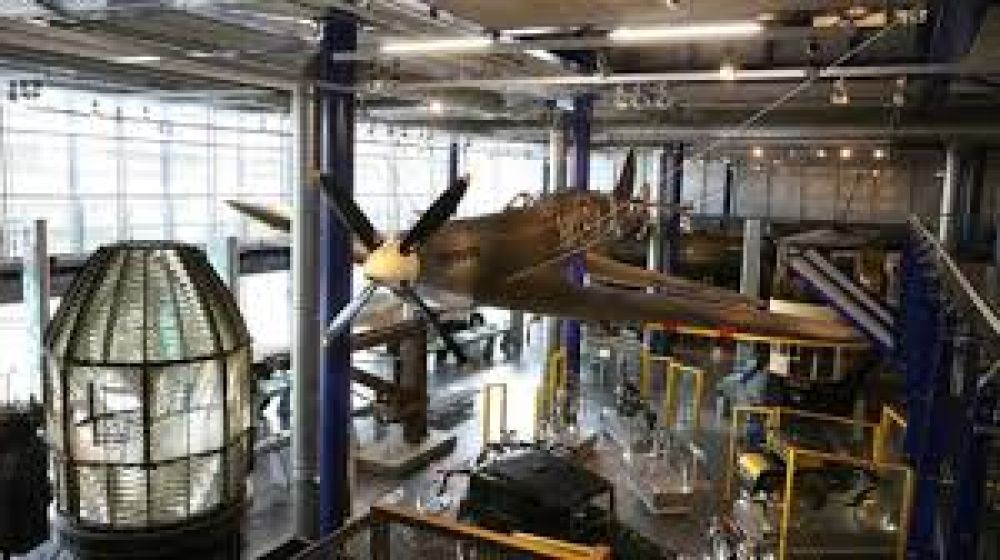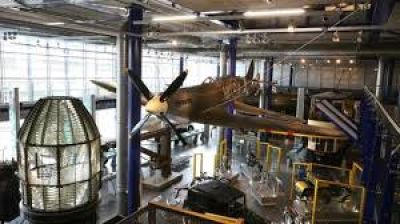

The Science Garden in Thinktank, Birmingham Science Museum, is an interactive outdoor discovery space that provides visitors of all ages with a chance to explore scientific concepts through play. Here, you’ll find over 30 exhibits including a human-sized hamster wheel, musical instruments, and pulley systems that demonstrate principles of mechanics, sound, and water flow. The activities are designed to engage both children and adults, promoting learning through hands-on experimentation and play. One of the highlights is the giant Newton's Cradle which is a mesmerizing display of energy transfer. The exhibit exemplifies Isaac Newton's third law of motion, 'for every action, there is an equal and opposite reaction,' providing an exciting learning opportunity for physics enthusiasts.
The Planetarium at Thinktank offers a mesmerizing experience that transports visitors into outer space. The state-of-the-art digital projection system provides a fully immersive environment where you can journey through the cosmos, exploring the night sky, various constellations, and distant galaxies. With a constantly updated roster of shows, the Planetarium caters to different interest levels and age groups. Educational and entertaining, these shows typically cover topics like the Big Bang, black holes, and the possibility of life on other planets. The narrated adventures are crafted to enhance understanding of the universe and inspire a sense of wonder about the world beyond Earth.
Science Demonstrations at Thinktank are dynamic live shows conducted by the museum's knowledgeable staff. Covering a range of topics from chemistry to physics, these interactive presentations are designed to engage visitors through experiments and demonstrations that explain scientific principles in ways that are easy to understand and entertaining. Topics may include explosive chemical reactions, the power of liquid nitrogen or the principles of flight. Each demonstration is a chance for audiences to ask questions, make predictions, and sometimes even participate in the experiments. It's an exciting way to see science in action and learn about how these principles apply to everyday life.
MiniBrum is a child-sized city located within Thinktank, aimed at children up to the age of 8. This interactive and educational exhibit allows children to explore and play in a miniaturized version of Birmingham, complete with buildings, shops, and vehicles. Here, little ones can learn about different professions and aspects of daily life by role-playing in a construction site, a café, a post office, and more. Designed with the input of children, families, and the early years community, MiniBrum is not only fun but also an excellent tool for developing language, motor skills, and understanding of the world.
The Wildlife Gallery in Thinktank reveals the diversity of life on Earth, showcasing an array of creatures from different habitats. It features an engaging mix of animal specimens, interactive elements, and informative displays. Visitors can learn about the various species that inhabit our planet and the adaptations that allow them to survive in their respective environments. The gallery emphasizes the importance of conservation, inspiring visitors to consider their impact on the world's ecosystems. From endangered species to common backyard birds, the Wildlife Gallery is an eye-opening journey into the natural world and our place within it.
The Kids’ City Workshop is a creative, hands-on space within Thinktank designed to encourage children to learn about cities and urban planning. Kids can engage in interactive activities such as building structures with blocks, designing their own cities on a large-scale map, or partaking in challenges that teach them about city infrastructure and services. It’s an opportunity for young minds to collaborate and think critically about the environment they live in. Workshops are facilitated by museum staff who guide the children through the process of construction, design, and problem-solving.
The Thinktank History Gallery is a window into Birmingham’s rich industrial past. Here, visitors can delve into the city's heritage as a manufacturing powerhouse, with displays of vintage vehicles, machinery, and artifacts. Exhibits chart the progress of industries like jewelry making, automotive production, and steam power. The gallery provides insight into the technological advancements that shaped the modern world and Birmingham’s contribution to it. Engaging historical narratives and interactive elements bring the story of industrial innovation to life for visitors of all ages.
The Futures Gallery at Thinktank allows visitors to ponder the possibilities of tomorrow’s world. It's an imaginative space where emerging technologies and cutting-edge science are discussed and explored through exhibitions on topics such as robotics, space travel, and sustainability. Interactive elements enable guests to engage with complex ideas in a hands-on manner, such as simulating driving a Mars rover or exploring how our bodies could adapt to life on another planet. Visitors can consider the ethical and practical implications of technological advancements, inspiring thoughtful reflection on the future we are creating.
The Spitfire Gallery is a tribute to one of the most iconic aircraft of World War II. The centerpiece is a rare and lovingly restored Spitfire Mark IX, suspended mid-flight for an impressive display. Surrounding the aircraft are exhibits detailing its history, construction, and the role it played during the war. Personal stories of pilots and ground crew are shared, providing a human element to the technological marvel. Interactive displays allow visitors to learn more about flight dynamics and the engineering breakthroughs that made the Spitfire such a formidable machine. The gallery serves as a solemn reminder of the innovation and bravery of the time.
Thinktank’s Discovery Workshops offer an enriched learning experience through specialized sessions that dive deeper into scientific topics. These workshops are typically designed to complement school curricula and can be adapted to suit various age groups. Whether it's a hands-on activity that illustrates principles of electricity, a biology lab dissection, or a coding challenge using robots, these workshops provide a unique educational opportunity. Led by the museum's education team, they foster curiosity and critical thinking in a fun and interactive environment.
